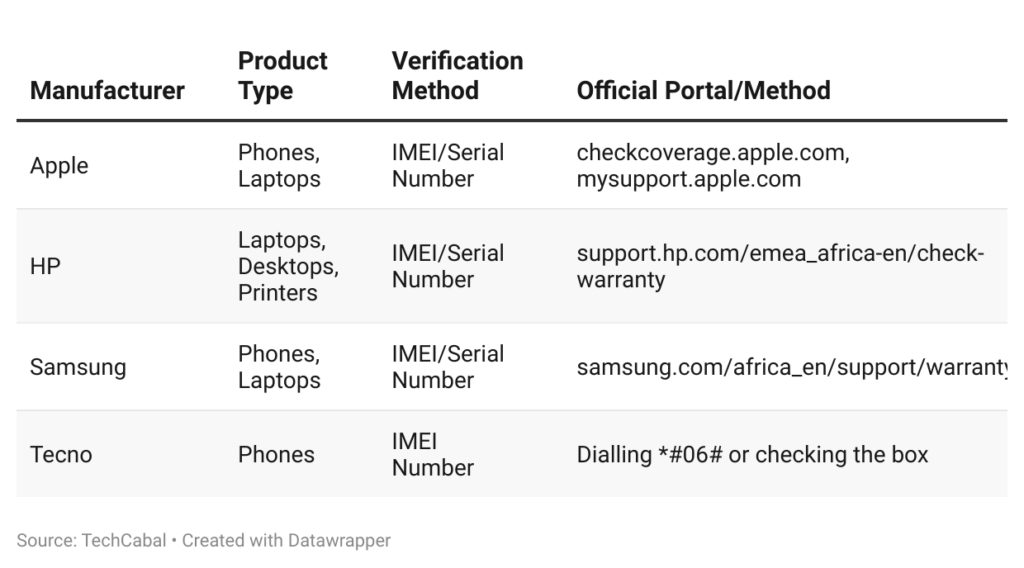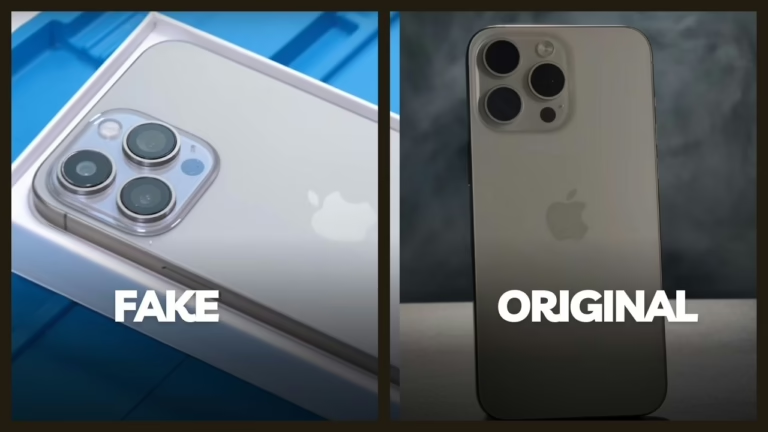Contents Overview
Identifying Genuine Tech Devices in Nigeria
Insights from Consumers on Counterfeit Electronics
Role of Brands and Specialists in Device Authentication
Manufacturer-Specific Verification Techniques
Purchasing smartphones or laptops in Nigeria carries a significant risk of acquiring counterfeit products. These fake gadgets range from exact replicas and refurbished units sold as new, to devices with tampered software or replaced components.
The impact of counterfeit electronics extends beyond inconvenience-it represents a substantial financial drain. Studies estimate that up to 40% of tech devices circulating in Nigerian markets are counterfeit, leading to losses amounting to billions of naira annually. For instance, investing over ₦300,000 (approximately $190) in a laptop that malfunctions within months is a common scenario. Moreover, counterfeit accessories like substandard chargers have been linked to hazardous incidents, including electrical fires.
This comprehensive guide aims to equip you with practical strategies to avoid falling prey to fake tech products.
How to Confirm the Authenticity of Tech Gadgets in Nigeria
Step 1: Examine Packaging and Physical Quality
Begin by scrutinizing the packaging. Authentic devices are packaged in sealed boxes featuring crisp branding and flawless printing. Be wary of:
- Unsealed or generic packaging without brand markings
- Logos that appear fuzzy or contain typographical mistakes
- Use of low-quality stickers instead of embossed or printed logos
Inspect the device itself. Genuine phones and laptops have a sturdy build and premium feel. Screens should be vibrant and sharp; for smartphones, the display surface should be glass rather than plastic. Included accessories such as chargers and cables must feel robust and fit securely.
Step 2: Authenticate Using IMEI and Software Verification
Every mobile phone is assigned a unique International Mobile Equipment Identity (IMEI) number. You can retrieve it by dialing *#06# or checking the device’s packaging or settings menu. Verify this number on official brand websites or trusted platforms like IMEI.info.
Beware of counterfeit devices that manipulate software to falsely display higher storage or RAM capacities. Avoid relying solely on the “About Phone” information; cross-referencing the IMEI is essential for confirmation.
Step 3: Evaluate the Seller’s Credibility
The seller’s conduct often reveals the legitimacy of the transaction. Exercise caution if the seller:
- Pressures you to pay immediately without adequate inspection
- Becomes hostile when you request to test the device
- Declines to provide a receipt or warranty documentation
Desmond, proprietor of DesonTechHub at Computer Village, Ikeja, advises, “Reputable outlets like SLOT offer at least a one-year warranty and clear return policies, which reflect accountability. Always test the device thoroughly and keep it in your possession after purchase to prevent any post-sale tampering.”
Consumer Perspectives on Counterfeit Tech in Nigeria
During a visit to Computer Village, both vendors and buyers shared valuable advice on steering clear of fake or stolen gadgets.
Desmond emphasized, “Avoid purchasing from unverified street vendors. If a seller cannot provide a receipt or warranty, it’s best to walk away. Always verify the IMEI and test all device functions in their presence.”
An anonymous trader highlighted the dangers of unknowingly buying stolen phones: “People have faced legal issues after purchasing stolen devices traced back to them. Buying from trusted shops or through referrals reduces this risk. Test every feature-camera, Wi-Fi, Bluetooth-don’t just inspect the exterior.”
Chioma, a sales representative at BrightTech Hub, stressed vigilance: “Never allow the seller to remove the device from your sight after testing. Once out of view, the device could be swapped. Always keep the gadget with you and take it home immediately.”
How Manufacturers and Experts Facilitate Device Verification
Beyond street-smart advice, many tech brands provide official tools to help consumers confirm authenticity.
Desmond explained, “HP laptops often feature holograms or QR codes on their packaging, which you can scan or verify via HP’s official website. Similarly, Apple and Samsung offer online portals to check IMEI or serial numbers. If the device isn’t recognized, it’s a red flag.”
Chioma shared a straightforward tip for popular budget brands: “For TECNO or Infinix phones, dial *#06# to display the IMEI and compare it with the number on the box. A mismatch indicates a counterfeit.”
Authorized retailers also play a crucial role. Tunde from Zit Gadgets, an official reseller, noted, “Stores like SLOT, Technocrat, and my shop provide receipts, warranties, and return policies, distinguishing us from informal sellers. Online, official Jumia stores are reliable as they issue proof of purchase.”
Government agencies such as the Standards Organisation of Nigeria (SON) and NAFDAC, along with apps like Chekkit, support consumers by enabling QR code scans to verify product genuineness.
From informal markets to official brand platforms and mobile applications, the consensus is clear: buyers have multiple resources to independently verify devices without solely trusting sellers.
Verification Tools Provided by Manufacturers

These manufacturer-endorsed verification methods empower consumers to independently confirm device authenticity, reflecting the industry’s acknowledgment of the widespread counterfeiting challenge. However, the responsibility ultimately lies with buyers to utilize these tools effectively.
Conclusion: Staying Safe in Nigeria’s Tech Market
Counterfeit tech gadgets are pervasive in Nigeria, but informed purchasing decisions can significantly reduce the risk of being deceived. Prioritize buying from reputable sources, meticulously inspect devices and packaging, and leverage official verification tools before completing any transaction. As more consumers adopt these precautions, the market for fake gadgets will diminish, fostering a safer environment for genuine technology purchases.




















0 Comments